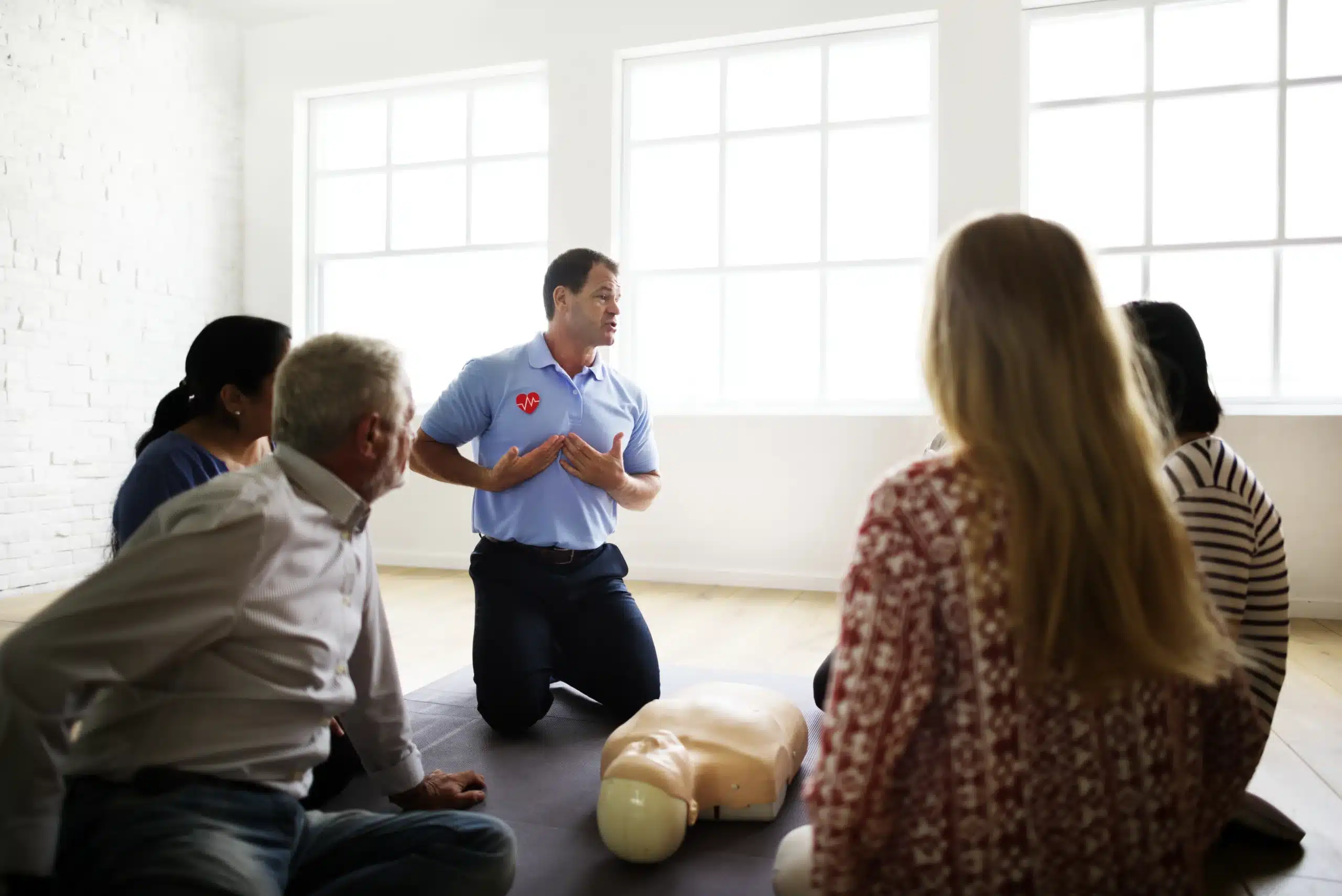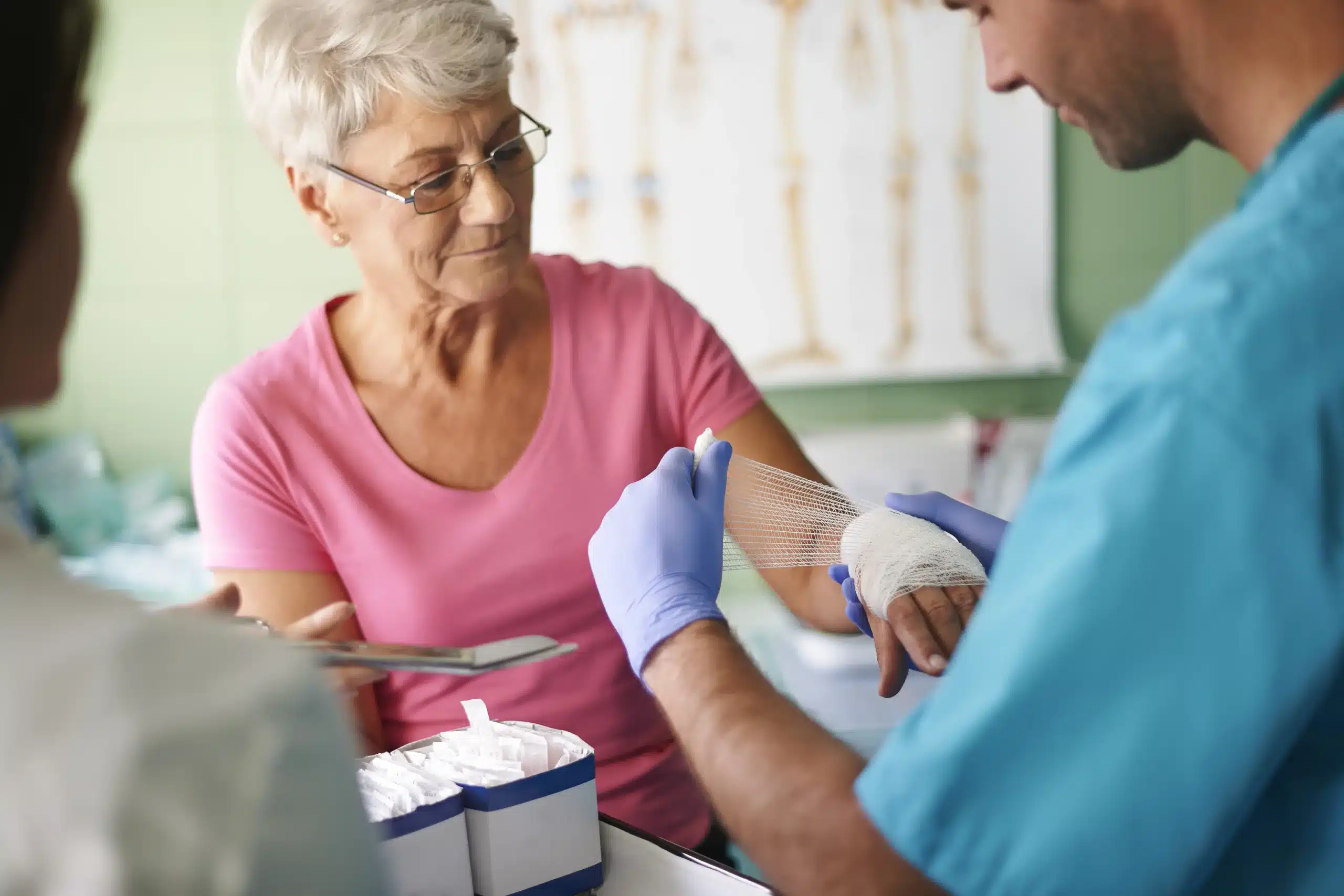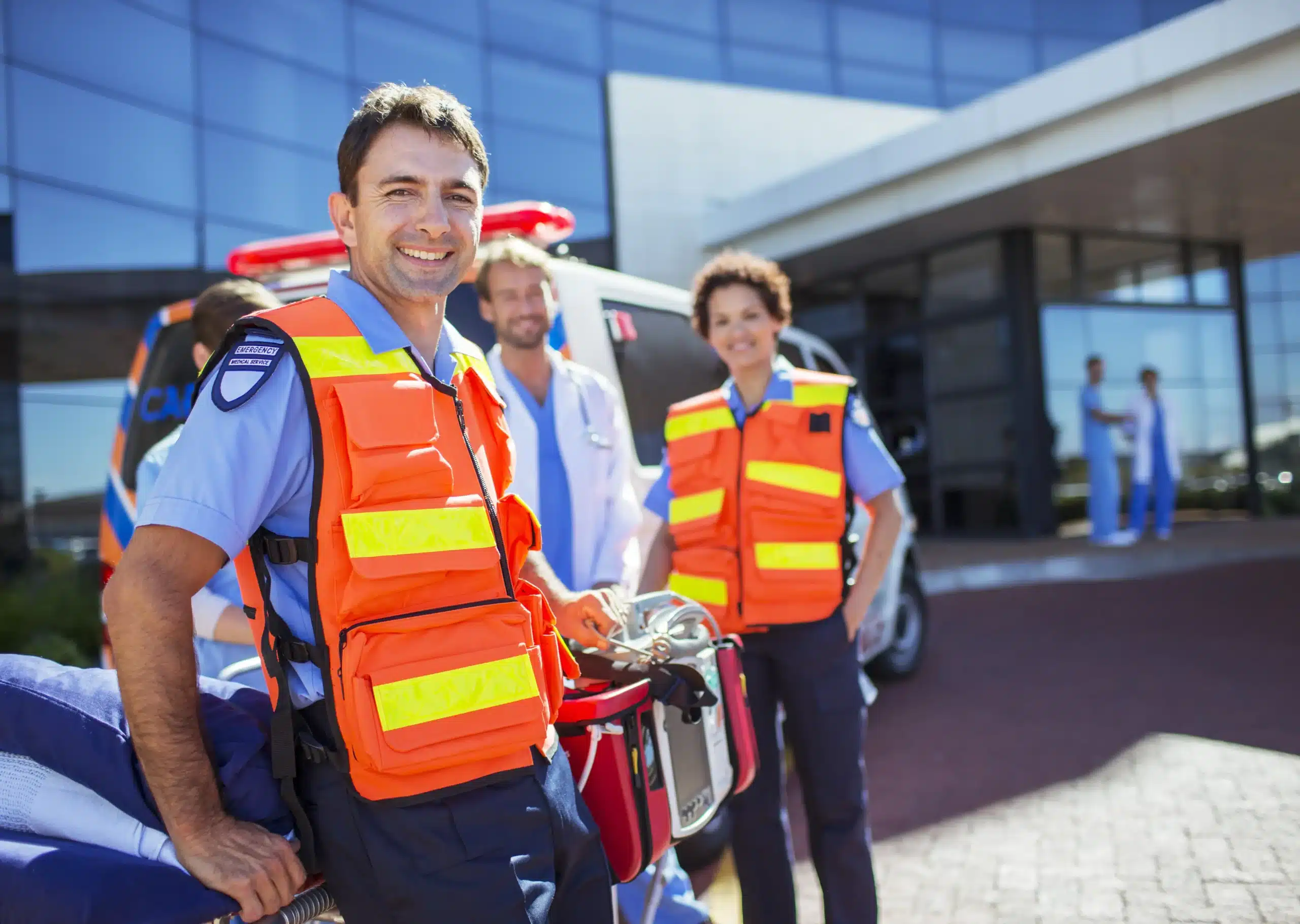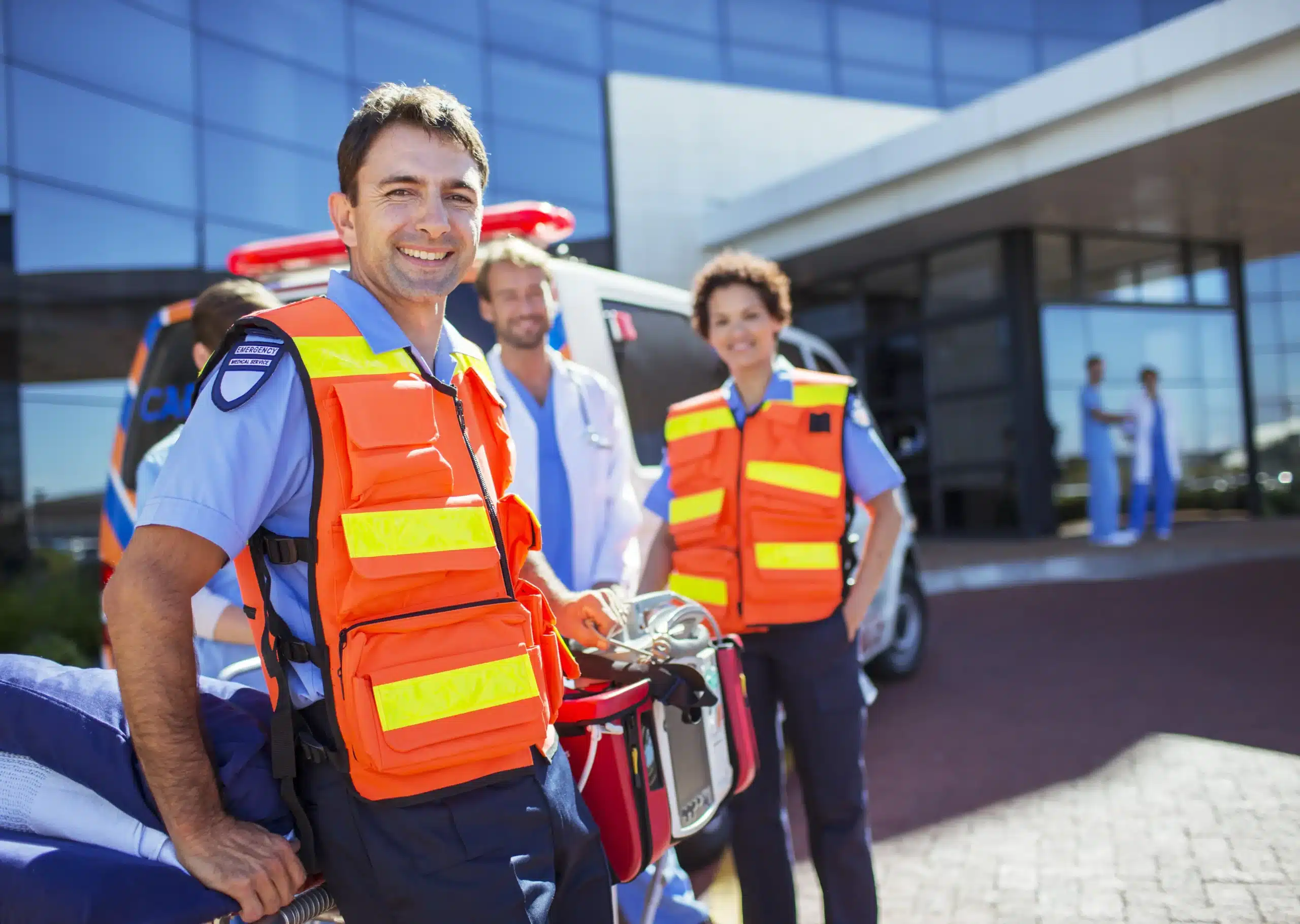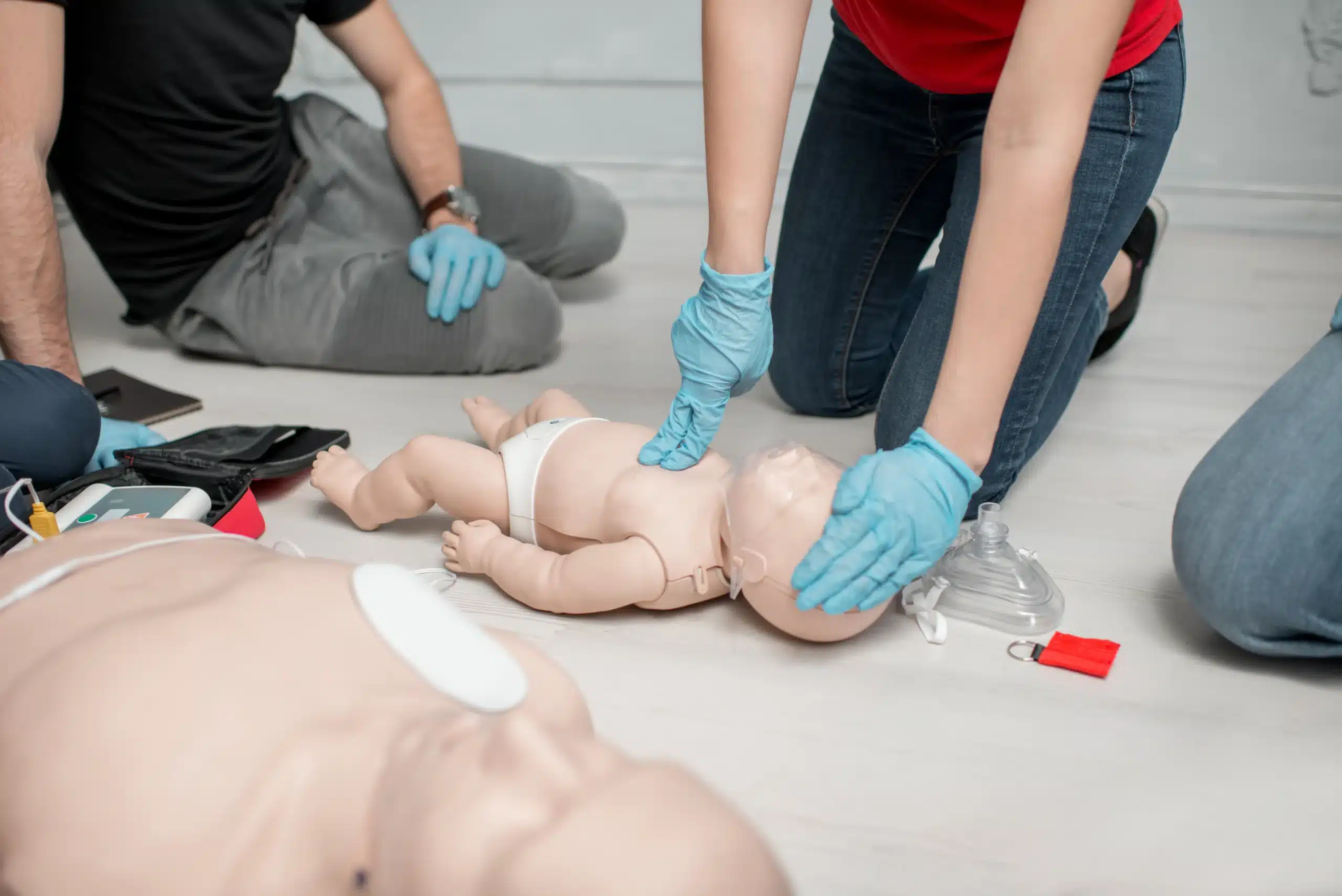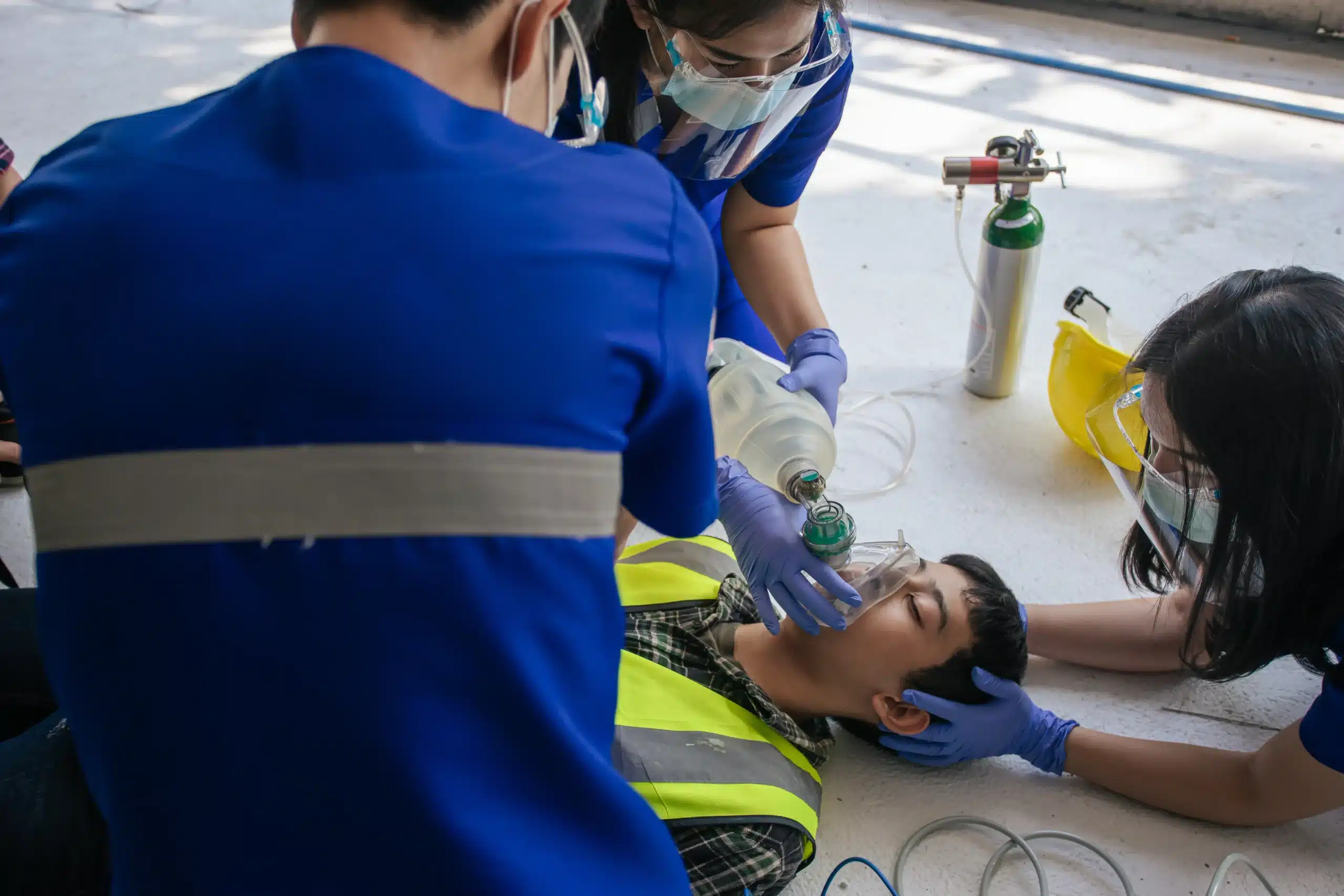Working in healthcare in Pittsburgh means facing urgent situations head-on. When every second counts, having advanced life support skills can make all the difference. If you’re a doctor, nurse, paramedic, or other healthcare provider in Pittsburgh, ACLS courses in Pittsburgh are essential for providing top-tier patient care during cardiovascular emergencies. This guide will help you understand the importance of ACLS certification, explore available courses in Pittsburgh, and prepare you for the challenges and rewards of this advanced training. We’ll cover everything from course prerequisites and costs to what to expect during training and how to maintain your certification. Let’s equip you with the knowledge and skills to confidently handle critical situations and provide the best possible care.
Key Takeaways
- ACLS is crucial for healthcare professionals: It provides advanced skills to manage cardiovascular emergencies, demonstrating a commitment to excellent patient care. Choose a course format—in-person, online, or blended—that suits your needs.
- Select your ACLS course wisely: Consider factors like cost, format, materials, and provider reputation. Prioritize value and ensure alignment with the latest American Heart Association guidelines. Ask about group discounts for team training.
- Stay current with your ACLS certification: Understand the renewal process and engage in continuing education to maintain your skills and knowledge. This ensures you’re always prepared to provide the best possible care.
What are ACLS Courses in Pittsburgh?
ACLS stands for Advanced Cardiovascular Life Support. These courses in Pittsburgh are designed for healthcare professionals needing advanced training to manage life-threatening cardiovascular emergencies, such as cardiac arrest, stroke, and other serious conditions. ACLS builds upon the foundation of Basic Life Support (BLS) skills, providing a deeper understanding of patient management in critical situations. If you’re a doctor, nurse, paramedic, or other healthcare provider, ACLS certification demonstrates your commitment to providing high-quality patient care during crucial moments. It equips you with the knowledge and practical skills to assess, stabilize, and treat patients experiencing these emergencies. You’ll learn effective algorithms, teamwork strategies, and how to use specialized equipment. This training is essential for anyone working in emergency medicine, critical care, or other areas where advanced life support skills are required.
Top Pittsburgh ACLS Course Providers
Finding the right Advanced Cardiovascular Life Support (ACLS) course is crucial for healthcare professionals. This list of providers in Pittsburgh offers various options to fit your needs and learning style. I encourage you to explore each to find the best fit for your schedule and budget.
Safety Training Seminars
While Safety Training Seminars primarily serves the San Mateo area with their AHA-certified courses, they’re a great example of a provider offering high-quality training at competitive prices. If you’re in the San Mateo area, their focus on excellent customer service makes them worth considering. They offer a variety of courses, including BLS, ACLS, and PALS.
The Center for Emergency Medicine
The Center for Emergency Medicine offers an ACLS Anywhere recertification course. This online option provides a convenient way to refresh your ACLS knowledge and skills without needing to attend a traditional classroom setting.
Start the Heart LLC
Start the Heart LLC provides a range of CPR and First Aid training options in Pittsburgh, including ACLS. They offer both classroom learning and blended learning options, giving you flexibility in how you approach your training.
UPMC’s Center for Continuing Education
For those seeking an accredited program with continuing education credits, UPMC’s Center for Continuing Education offers an ACLS program that provides AMA PRA Category 1 Credits™. This is a valuable option for medical professionals looking to maintain their licensure and advance their careers.
Hands Over Hearts CPR, LLC
Hands Over Hearts CPR, LLC is an authorized American Heart Association and American Red Cross training provider. They offer a variety of courses for different groups, from medical professionals to families, at various locations throughout the Pittsburgh/Mon Valley area.
CPR Certification Pittsburgh
While CPR Certification Pittsburgh focuses primarily on American Red Cross BLS CPR classes, their high ratings and hands-on training approach are worth noting if you’re also seeking BLS certification. They offer in-person training in Pittsburgh.
ACLS Course Formats & Benefits
Choosing the right ACLS course format is a personal decision. Think about your learning style, schedule, and what works best for you. Here’s a breakdown of each option to help you make an informed choice.
In-Person Training: Hands-on Experience
In-person ACLS classes offer a structured learning environment with face-to-face interaction with instructors and peers. This format is ideal for hands-on training. You’ll work with real equipment, practice skills in real-time, and receive immediate feedback. This direct interaction can be invaluable for mastering complex procedures and building confidence. If you thrive in a traditional classroom setting and value hands-on learning, an in-person ACLS course might be the right choice. Our in-person ACLS courses are designed for a realistic training experience.
Online Courses: Flexibility and Convenience
Online ACLS courses offer maximum flexibility. You learn at your own pace, on your own schedule, and from anywhere with an internet connection. This is especially helpful for busy professionals or those with family responsibilities. Online courses often include interactive elements like videos and simulations to keep you engaged. Some online courses cover everything from basic life support (BLS) to advanced concepts, making them a comprehensive option. One example is this online ACLS course. Keep in mind that online courses typically require a separate in-person skills session for hands-on practice and official certification.
Blended Learning: Combining the Best of Both
Blended learning combines online learning with in-person skills sessions. You’ll complete the online portion at your own pace, covering the theoretical material. Then, you’ll attend an in-person session to practice and demonstrate your skills. This offers a balance of flexibility and hands-on training. Blended learning programs, like those described by Safety Unlimited and Attentive Safety, use a mix of online resources and instructor-led sessions to ensure you develop both theoretical knowledge and practical skills. This approach can be particularly effective if you like interactive online modules and also benefit from instructor guidance during hands-on training.
ACLS Course Costs & Value
Typical ACLS Certification Prices
Knowing the price range for ACLS courses helps you budget effectively. In Pittsburgh, ACLS certification typically costs between $150 and $300. Several factors influence the final price, so compare a few options before committing. You might find more affordable choices, like those from Safety Training Seminars, known for its competitive pricing in Contra Costa County. Remember, investing in ACLS certification invests in your career and ability to deliver critical care.
Factors Influencing ACLS Course Costs
Several factors contribute to an ACLS course’s total cost. The course format—in-person, online, or blended—plays a significant role. In-person classes often have costs related to the training location, equipment, and instructor expertise. Online courses may have lower overhead but still vary in price depending on the platform and resources. Included study materials, exam fees, and continuing education credits also affect the final cost. Some providers, like Safety Training Seminars, offer discounts for groups, which can lower the individual price. Always ask about extra fees or required materials before you register.
Get the Most Value for Your Money
When selecting an ACLS course, prioritize value over the lowest price. Look for courses offering more than basic certification. Consider whether the course includes access to practice materials, updated resources, and ongoing support. Some providers offer refresher courses or continuing education, valuable for maintaining your skills and staying current with guidelines. A provider’s reputation for quality instruction and comprehensive materials is also essential. Check if the course aligns with the latest American Heart Association guidelines for the most up-to-date training. Finally, consider the course schedule and location. A convenient course that minimizes travel time saves you time and money.
ACLS Course Prerequisites
Before you jump into an Advanced Cardiovascular Life Support (ACLS) course, it’s important to make sure you meet a few requirements. These prerequisites help ensure you’re prepared to handle the advanced material and build upon a solid foundation of life-saving skills. We want you to feel confident and ready to succeed!
Basic Life Support (BLS) Certification
First things first, you’ll need a current Basic Life Support (BLS) certification. This foundational course equips healthcare providers with the essential skills to perform CPR and manage airway emergencies. Think of it as the bedrock for ACLS training. A solid understanding of BLS principles is crucial for progressing to more advanced cardiovascular life support techniques. Check out our BLS course options to learn more.
Healthcare Provider Status
ACLS courses are tailored for healthcare professionals actively involved in managing cardiopulmonary arrest and other cardiovascular emergencies. This means you should be working as a doctor, nurse, paramedic, or other allied health professional. The course content and scenarios are directly relevant to the challenges you face in your daily practice. It’s designed to refine your skills and enhance your ability to provide effective care in critical situations. For teams looking to train together, take advantage of our group discounts.
EKG and Pharmacology Knowledge
A good grasp of EKG interpretation and pharmacology is also essential for success in an ACLS course. You should be comfortable reading EKGs and understanding the various medications used in advanced cardiac life support. This knowledge is key for making quick, informed decisions during emergencies. While not every ACLS course explicitly requires prior EKG and pharmacology certification, having a working knowledge will significantly enhance your learning experience and overall preparedness. You can find our ACLS courses here.
Enroll in an ACLS Course
Getting started with your ACLS certification is straightforward. This section walks you through registration, finding discounts, and verifying that you’re signing up for a legitimate course.
Registration Process
Most ACLS providers require pre-registration. Contact Safety Training Seminars directly to schedule your ACLS class and learn about available dates and times. We make registration easy so you can focus on preparing for your course.
Group Discounts and Promotions
Training a team? Ask about group discounts for your workplace. Safety Training Seminars offers special pricing for group classes to make training more accessible. We can also conduct training at your location or ours.
Verify Course Legitimacy and Accreditation
Before committing to an ACLS course, confirm it’s accredited by the American Heart Association (AHA). This accreditation ensures your training meets the highest standards and that your certification will be widely recognized. Safety Training Seminars proudly offers AHA-accredited courses, giving you confidence in the quality of your training. Check out our low price guarantee.
What Happens During Your ACLS Course?
This section covers what you can expect during your ACLS training, from course structure to testing and certification. Understanding the process will help you feel prepared and confident going into your class.
Course Duration and Structure
ACLS courses typically involve two parts: online learning and an in-person skills session. The online portion lets you learn the material at your own speed and often provides access to supplemental materials for up to two years. This blended learning approach combines the flexibility of online study with the practical application of hands-on training. The in-person skills session focuses on practicing essential techniques and teamwork. The full ACLS course, including both online and in-person components, takes roughly 15 hours and 20 minutes, including breaks and lunch. For more details on course options, visit the American Heart Association website.
Key ACLS Training Topics
ACLS training builds upon the foundational skills learned in Basic Life Support (BLS) certification. It delves deeper into complex algorithms and interventions for managing life-threatening cardiovascular emergencies. Key topics include algorithms for adult cardiac arrest, acute coronary syndromes (like heart attacks), and stroke. You’ll also learn effective team dynamics and communication strategies crucial for successful resuscitation. For a more thorough explanation of how BLS, ACLS, and PALS training integrate, take a look at this training guide.
Skills Testing and Certification
After completing the online modules, you’ll participate in the in-person skills session. This portion allows you to demonstrate your proficiency in the techniques you’ve learned. You’ll be tested on your practical skills, and upon successful completion, you’ll receive your electronic certification card the same day. Some free online ACLS courses may require you to purchase additional services to receive official ACLS certification through the American Heart Association. Clarify certification details with your chosen provider, such as Safety Training Seminars, to ensure you receive a nationally recognized credential.
Overcome ACLS Course Challenges
Passing your ACLS course involves more than just showing up. It requires preparation, effective study strategies, and the right mindset. Let’s break down some common challenges and how you can address them.
Grasp Complex Material
ACLS courses cover a lot of complex information. To really absorb everything, start with a solid foundation by choosing an ACLS course accredited by a reputable organization like the American Heart Association. Look for courses that use interactive elements like simulations and videos—these can make a big difference in your understanding. Working through practice scenarios and using study guides can also improve your comprehension and retention.
Manage Test Anxiety
Test anxiety is a real concern, and it can affect how well you perform. Getting enough sleep before the exam is crucial for clear thinking and recall. Simple things like eating a healthy breakfast and incorporating stress-reducing activities like exercise or meditation can also make a difference. And remember, if you don’t pass on your first try, you can always retake the exam. Check out Safety Training Seminars’ low price guarantee for more information on affordable options.
Balance Study Time
Finding a good balance between study time and your other commitments is essential. A self-paced online course can be a great way to achieve this balance, offering the flexibility to learn when and where it suits you best. You can revisit challenging concepts as needed and move through the material at your own speed. Don’t assume online learning means lower quality—reputable online courses maintain high standards, ensuring you receive a comprehensive education.
Master Hands-On Skills
ACLS isn’t just about book learning—it’s about putting your knowledge into action. A quality course will include a hands-on skills test so you can demonstrate your proficiency. A hybrid class format, combining online learning with in-person practice led by experienced instructors, can be an effective way to build both your theoretical knowledge and practical skills. This approach reinforces your understanding and builds confidence for real-world situations. Safety Training Seminars offers group discounts, making it a cost-effective choice for teams or groups.
Prepare for ACLS Course Success
Getting ready for your ACLS course? A little prep work goes a long way. Here’s how to set yourself up for a smooth and successful learning experience.
Recommended Study Materials
Start strong by gathering your study materials. A current ACLS provider manual is essential. Supplement this with an updated study guide to help focus your learning on the core concepts and protocols. Make sure you’re familiar with the ACLS algorithms for Adult Cardiac Arrest, Acute Coronary Syndromes, Stroke, Tachycardia With Pulse, Bradycardia With Pulse, and Immediate Post-Cardiac Arrest Care. Memorizing these algorithms using spaced repetition will be a huge help. For more helpful advice, check out these tips to pass the ACLS Certification Exam.
Practice Scenarios and Simulations
Hands-on practice is key to mastering ACLS. Many courses incorporate simulation-based training and scenarios. If your course offers practice simulations or if you can access them online, take advantage of these opportunities. Working through realistic scenarios will build your confidence and improve your response time in real-life situations. Some ACLS courses use programs like HeartCode ACLS, which includes interactive activities, dramatizations, and eSimulations to reinforce learning. Explore different ACLS class formats to find the best fit for your learning style.
Time Management and Exam Prep
Plan your study time effectively. If you’re taking a self-paced online ACLS course, create a schedule that works for you. Break down the material into manageable chunks and set realistic study goals. Remember, the ACLS exam itself can take 5–6 hours to complete, though it can often be broken into sessions. Factor this into your preparation timeline so you don’t feel rushed. Effective time management will reduce stress and improve your overall learning experience.
Maintain Your ACLS Certification
Once you’ve earned your ACLS certification, staying current is key. This section covers the renewal process and the importance of continuing education.
Renewal Process
ACLS certification is typically valid for two years. Knowing when your certification expires and understanding the renewal process is crucial to avoid a lapse in your credentials. The American Heart Association sets the standards for ACLS, so it’s essential to ensure your renewal course aligns with their guidelines. Check with your certifying body for the most up-to-date requirements. Some providers offer streamlined renewal course in advance to avoid any gaps in your certification. Many providers offer convenient schedules and locations to make renewal easy.
Continuing Education
Even with a valid certification, continuing education in ACLS is vital. Medical knowledge and best practices are constantly evolving, so staying informed about the latest advancements is essential for providing the best possible patient care. Continuing education opportunities can provide you with valuable learning experiences and AMA PRA Category 1 Credits™. These courses often cover updates to ACLS guidelines, new research findings, and emerging techniques in emergency cardiovascular care. By actively participating in continuing education, you not only maintain your certification but also enhance your skills and knowledge, ultimately improving patient outcomes. Look for courses that offer hands-on practice and simulations to reinforce your learning and build confidence in your abilities.
Related Articles
- ACLS Renewal in Pittsburg: Your Simple Guide – Antioch CPR Classes
- PALS HeartCode Training in Pittsburg: Costs & Locations – Antioch CPR Classes
- AHA ACLS Classes in Antioch, CA – Antioch CPR Classes
- CPR Certification in Pittsburg: Your Guide – Antioch CPR Classes
- ACLS Certification in Brentwood: Your Comprehensive Guide – Antioch CPR Classes
Frequently Asked Questions
What exactly does ACLS certification entail?
ACLS certification signifies that a healthcare provider has completed advanced training in managing life-threatening cardiovascular emergencies. It goes beyond basic CPR, equipping professionals with the knowledge and skills to handle complex situations like cardiac arrest, stroke, and acute coronary syndromes. This involves understanding advanced algorithms, pharmacology, and team dynamics in critical care settings.
How do I choose the right ACLS course in Pittsburgh?
Consider factors like course format (in-person, online, or blended), cost, location, and the provider’s reputation. Look for courses accredited by the American Heart Association to ensure they meet established standards. Think about your learning style and schedule – a blended learning approach might be ideal if you prefer flexibility combined with hands-on practice. Don’t hesitate to contact providers directly to discuss your needs and ask about group discounts if you’re training with colleagues.
What are the typical prerequisites for taking an ACLS course?
Generally, you’ll need a current BLS (Basic Life Support) certification for healthcare providers. A working knowledge of EKG interpretation and pharmacology is also highly beneficial. ACLS courses are designed for healthcare professionals like doctors, nurses, paramedics, and other allied health personnel who regularly encounter cardiovascular emergencies in their practice.
How can I best prepare for my ACLS course and exam?
Start by acquiring the recommended study materials, including the ACLS provider manual and a study guide. Familiarize yourself with the key algorithms for various cardiovascular emergencies. Engage in practice scenarios and simulations to apply your knowledge and build confidence. Manage your study time effectively, especially if you’re taking a self-paced online course. Don’t underestimate the importance of hands-on practice during the skills session.
How do I maintain my ACLS certification once I’ve earned it?
ACLS certification is typically valid for two years. You’ll need to complete a renewal course before your certification expires. Stay informed about renewal requirements and processes by checking with your certifying body or the American Heart Association. Continuing education is crucial for staying up-to-date with the latest advancements in cardiovascular care, even with a valid certification. Look for opportunities to expand your knowledge and skills through continuing education courses and workshops.


